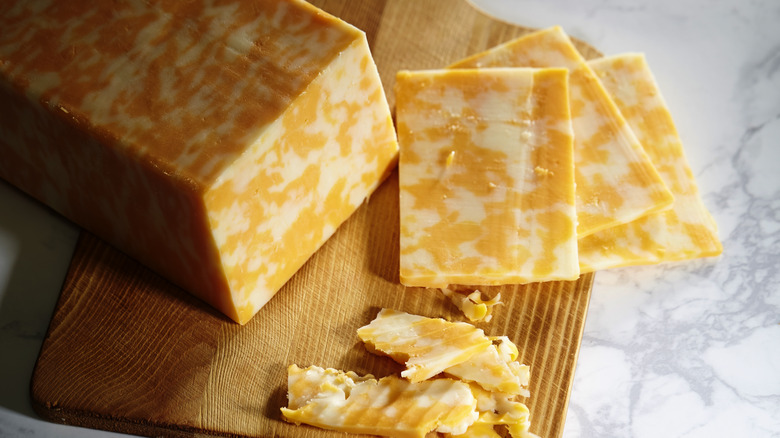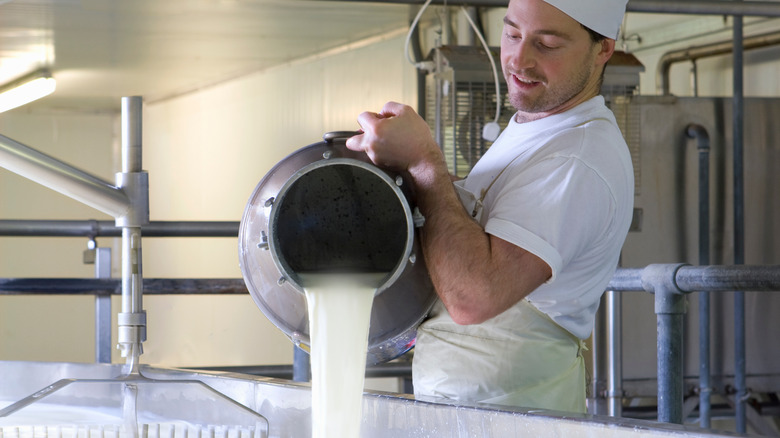The Small Difference Between Colby Cheese And Cheddar Cheese
We have Somerset, England to thank for the beloved cheddar cheese, which is one of the country's oldest cheeses (via Britannica). Since it is aged for a minimum of three months, cheddar has a pungent flavor that becomes sharper with age. Colby cheese, on the other hand, is an American made cheese that is known for its milder taste and creamy texture as described by The Spruce Eats. Both typically yellow in color, due to being dyed with annatto, a food coloring made from achiote seeds, these two cheeses are often confused for one another.
This makes sense as they are both semi-hard cheeses made from cow's milk. According to Cheesehouse, Colby cheese was actually invented in the late 19th century by Joseph Steinwand at a dairy farm in Colby, Wisconsin that was producing mostly cheddar cheese at the time. While you may be able to tell a difference once you bite into them, Colby cheese was created by changing one small step in the usual cheddar production.
A quick wash in cold water
When making traditional cheddar cheese, one warms milk, adds in a starter culture, mixes in rennet to help separate the curds from the whey, and finally, drains the whey, per Wisconsin Cheese. At this point, the curds are then heated and molded into slabs. This is the point where cheddar cheese differentiates itself from Colby. While making cheese following the aforementioned steps at his family's dairy farm, Joseph Steinwand decided to wash the curds in cold water — which, in turn, stops the acidification process lending to a sweeter, more mild cheese. In addition, after pressing the curds, Colby cheese is aged for only one to three months, much less than traditional cheddar.
As simple as this sounds, these days there are multiple types of Colby cheese from different producers that all have a slightly different taste. Flavored Colby cheeses have become quite popular, including Colby-Jack, which is flavored with dried chilies. Given that it is a high-moisture cheese, Colby will melt very well, making it the perfect creamy addition to grilled cheeses, cheese sauces, and burgers. The Spruce Eats also suggests shredding it and using it on tacos and fajitas. As always, Colby makes for a delicious addition to any cheese board, pairing especially well with apples and pears.

